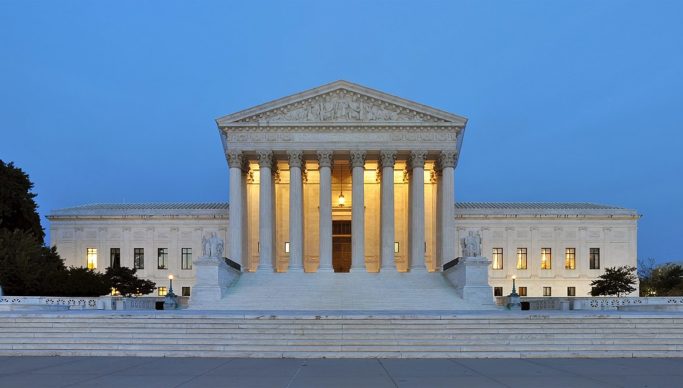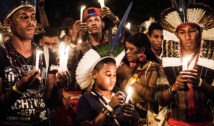
Coach Who Lost Job for On-Field Prayer Takes a Knee Once More After Years of Legal Struggles
- By Geoffrey Peters --
- 05 Sep 2023 --
A high school football assistant coach who had been dismissed for quietly offering a brief prayer following football games has returned to the field after successfully regaining his employment in Washington state following a ruling by the U.S. Supreme Court that determined his action was constitutionally protected.
The coach, Joe Kennedy, walked alone to the center of the field, knelt down, and engaged in a prayer lasting some 10 seconds after his Bremerton High School football team defeated an opposing school on September 1.
Kennedy stepped down from his job, however, on September 6 after only one game upon returning. The announcement, which was posted on his website, listed various reasons for his decision, including the need to provide care for a family member who was unwell and residing in another state.
Up until the first game on September 1, Kennedy had been residing in Florida, and had expressed uncertainty about whether he would continue coaching, the Associated Press reported. “I believe I can best continue to advocate for constitutional freedom and religious liberty by working from outside the school system so that is what I will do,” Kennedy stated on his website, adding: “I will continue to work to help people understand and embrace the historic ruling at the heart of our case.”
Kennedy began coaching the Bremerton High School’s football team in 2008 after serving for nearly 20 years in the U.S. Marine Corps. He was placed on leave in 2015 for failing to heed a warning from the local school district in the town of Bremerton that any praying on the field remain discreet and separate from students. His contract was eventually not renewed.
District officials had expressed their apprehension that permitting the Washington state coach’s prayers from the 50-yard line following games might imply government support for religion, potentially infringing upon the principle of separation between church and state.
After repeatedly losing legal battles for seven years, Kennedy appealed to the U.S. Supreme Court in April 2022. The apex court ruled 6-3 in his favor on June 27, 2022, agreeing that the coach had a constitutional right to say prayers on the field.
As he reasserted that fundamental right following his team’s September 1 victory, however, Kennedy’s demeanor appeared to be marked more by anxiety than a sense of triumph.
“As much as they have accepted me, still, I feel like I’m kind of the outsider and still on, kind of like, on enemy grounds,” the coach said. “The school district and this lawsuit took a lot of the joy out of coaching. It took away just about everything that meant something to me.”
“I’ve always felt very comforted in knowing that so many people were supporting this from all different sides,” Kennedy said in a September 3 interview with Fox News Digital. “This was an American thing. It was a First Amendment thing. And of course, it was also a religious thing. So everybody of every faith wanted this to go through and to see it to the end.”
“This victory, however, did not just deliver justice for only one coach in Washington state,” First Liberty Institute, a legal organization that represented Kennedy before the Supreme Court, said in a statement, adding: “It has a nationwide impact on public-school teachers, employees and coaches. It affirms their constitutional right to engage in brief, quiet, personal prayer in public and sets a major precedent for religious freedom in our country moving forward.”
Kennedy’s victory also contributes to the correction of a longstanding legal precedent referred to as the “Lemon Test,” which has negatively impacted and cast a shadow over religious freedom for half a century, the First Liberty statement said.
The institute added that the Supreme Court’s decision is based on its judgments dating back to a 1971 case, Lemon v. Kurtzman, which created a situation where individuals could easily assert they were “offended” by a religious presentation, subsequently filing lawsuits and prevailing in court.
The test resulted in numerous school administrators mistakenly believing they were obligated to curb religious practices, they said, adding that such actions frequently contribute to violations of the rights of both teachers and students.



















